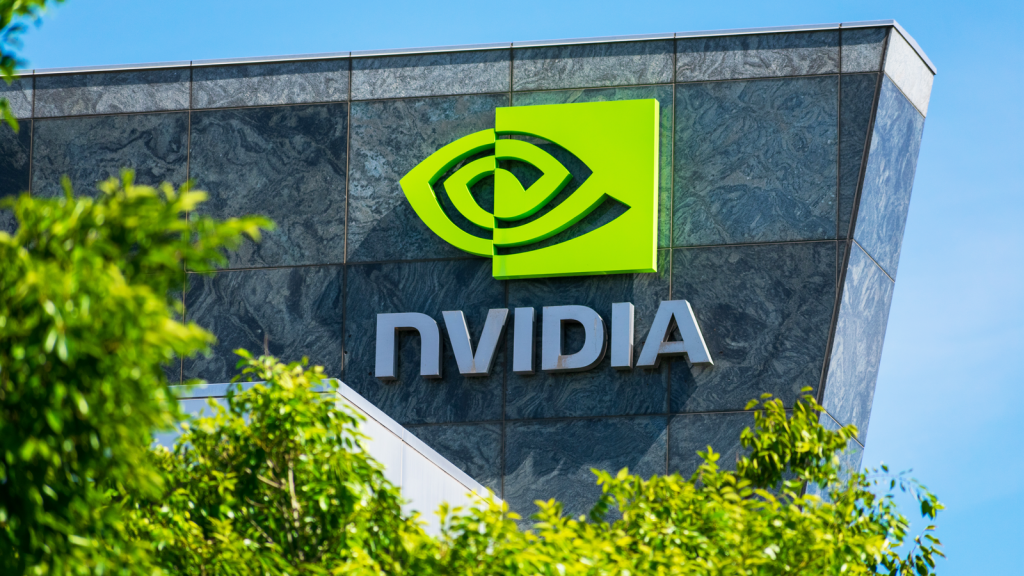
Nvidia (NASDAQ:NVDA) stock is on sale, and not because it’s just a few percentage points below its all-time high. The stock has become not just a top-shelf growth play, but a solid value play as well. As InvestorPlace’s Tyrik Torres recently pointed out, Nvidia is cheaper than it was a year ago based on its forward price-to-earnings ratio.
Nvidia’s earnings growth from AI-compatible chips outweighs the impact on NVDA’s share price. This implies that the impact on NVDA’s share price does not fully reflect the prior and recent success of Nvidia’s earnings growth from AI-compatible chips. Some analysts expect this stock’s upward trend to continue.
NVDA Stock: A Bona Fide Bargain?
Among stocks in the AI space, big run-ups in price have resulted in massive levels of multiple expansion. For instance, some tech stocks trading between 20 and 30 times earnings have surged to valuations in the 30 to 40 times earnings range.
Other tech names with big AI exposure have experienced even larger (in some cases, jaw dropping) levels of multiple expansion. This hasn’t been the case for NVDA stock.
Four quarters ago, when shares initially zoomed on ‘AI mania’ but before the impact of the generative artificial intelligence trend really began to enhance the bottom line, shares traded for 61.7 times forward earnings.
Right now, you can buy Nvidia, even as it nears all-time highs, at a valuation of just 37.2 times forward earnings. Yes, it may seem a bit odd to say “just 37.2 times earnings.” Relative to stocks overall, that’s a high valuation.
However, compare this supposed rich multiple against Nvidia’s forecast growth this year, next year, and beyond. Once you do this, there’s only one conclusion: this stock is a bona fide bargain.
High Performance Paves a Path to Four-Figure Prices
As we’ve discussed in prior coverage of NVDA stock, Nvidia continues to dominate the AI chip space, holding between 80%-90% market share. Yes, rivals like Advanced Micro Devices (NASDAQ:AMD) and Intel (NASDAQ:INTC) are starting to play catch up.
However, even if Nvidia’s market share percentage slides some from here, the overall growth of the generative AI chip industry could far outweigh possible competitive risks.
The company’s high-performance GPUs continue to be sought-after for use in training artificial intelligence models.
Nvidia is also moving aggressively into emerging areas of the nascent AI chips sector, such as GPUs for use in AI-compatible PCs. With this, it’s not far-fetched to see why analyst consensus calls for the company to grow sales by 81.5%, and earnings by 106.7%, this fiscal year (ending January 2025).
During the fiscal year ending January 2026, high-performance could translate into high performance in terms of revenue and earnings yet again.
The top end of FY2026 forecasts call for revenue of $199.3 billion, and earnings of $41.88 per share. If this occurs, and even if the stock doesn’t benefit from any further multiple expansion, NVDA will undoubtedly be trading at four-figure price levels.
The Verdict
When I say four-figure price levels, I’m not talking about merely a move to $1000, $1100, or even $1,250 per share. Multiply the FY2026 forecast against Nvidia’s current multiple. This gives a potential price for NVDA above $1,500 per share.
That’s not to say NVDA will reach lofty price levels immediately, or even within this year. Shares could also still encounter turbulence/volatility along the way.
However, as the tech industry continues to build out its AI training infrastructure, and the rollout of AI-PCs and other AI-compatible devices takes shape, Nvidia is well-positioned to continue hitting new highs.
Maintain an existing position or enter/add to a position in NVDA stock.
NVDA stock earns an A rating in Portfolio Grader.
On the date of publication, Louis Navellier had a long position in NVDA. Louis Navellier did not have (either directly or indirectly) any other positions in the securities mentioned in this article.
The InvestorPlace Research Staff member primarily responsible for this article did not hold (either directly or indirectly) any positions in the securities mentioned in this article.




